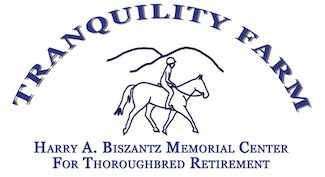With great interest I read a recent letter to the editor stating one horseman’s opinion of how to handle unwanted horses (The Blood-Horse of Dec. 25/Jan. 1, page 3832). His reasoning was logical and reminded me of so many people who elegantly tell you about a problem but most times can’t be creative on how to fix it.
I don’t think death is the answer.
The Thoroughbred industry for many years has overlooked after care of these great athletes we watch and that bring us great excitement and thrills. When many of these fine horses can no longer perform, they are often treated like objects to be quickly discarded. Euthanasia or slaughter becomes the quickest and least-costly solution.
Is there a better way?
I think so, and it doesn’t take more committees or meetings to discuss the situation.
Takeout on wagering handle as extracted by the tracks and uncashed pari-mutuel tickets give us numerous opportunities to take a very small percentage of these funds and place them in escrow accounts. At year’s end these funds could be distributed to accredited retirement and rehabilitation farms all over the U.S. that want to take care of the horse and desperately need funding.
“Accredited” farms means what the word implies—adequate facilities, vet care, feed, shelter, and proper care of the animal. We have hundreds of farms today all over the country that meet these quality standards and they need funding.
For more than 11 years Tranquility Farm in California has cared for more than 1,000 horses, many of which were adopted out for second careers. Some had to be euthanized, and all quality horsemen know when death is warranted and appropriate. However, too many horses have gone to slaughter simply for the sake of saving money when they could have sustained meaningful lives.
Many owners, like myself, don’t believe we can ever achieve major league sport status and the public’s trust if we continue to kill these fine athletes that the public comes to see perform.
The gentleman who expressed his opinion that most Thoroughbred owners can’t afford the long-term care for retired horses is correct. Certainly some can, as we have done at Tranquility. However, the accuracy of his opinion is no justification when a small percentage of handle or uncashed tickets could create substantial funds that retirement and rehabilitation farms all over America desperately need.
Let’s rid ourselves of the killer buyers at the tracks who buy flesh for profit, and let’s punish those people who sell to these buyers. The Thoroughbred horse deserves a better and brighter future than the slaughterhouse offers. I know we can do better; we do it at Tranquility Farm.
It is not easy, however.
I applaud the states, and tracks such as Suffolk Downs, that have taken action to protect the horse. I urge all state racing associations to get active and aggressive in finding ways to support needed funding.
I urge all the well-intentioned committee members who meet annually to address the unwanted horse problem, to do so, not with conversation but with action. There is a remedy; it just needs funding so that lots of fine animals will get second careers and better lives before death. Anything is possible if you try hard enough.
Gary Biszantz is owner of Cobra Farm and former chairman of the Thoroughbred Owners and Breeders Association.
